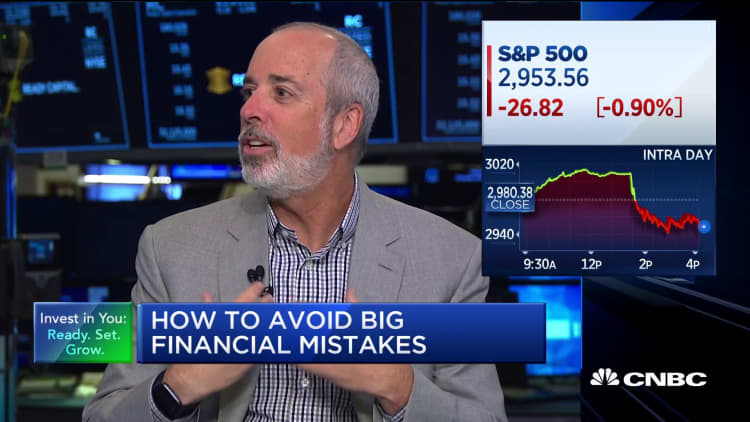
Since 1988, the stock market's average return has been 10% per year. But stock fund investors have earned only 4.1% per year, according to Dalbar's Quantitative Analysis of Investor Behavior.
So, why are investors missing out on 60% of the market's profits?
Because your brain gets in the way.
Survival instincts have evolved into "behavior biases" that cause us to make bad financial and investment decisions. Understanding them can help you avoid costly mistakes. Let's look at five of the most important biases researchers have identified.
1. Herd mentality bias
Humans seek comfort in groups. So you tend to buy and sell stocks when everyone else does. The problem is that most people buy when prices are rising and sell when prices are falling. It's a bad idea to follow the crowd.
2. Overconfidence bias
Are you a better-than-average driver? Well, 75% of Americans say so. Obviously, only half can be better than average — meaning lots of people aren't as good as they think they are. Hubris applies to investing, too: Are you sure you're as good at picking investments as you think you are?
3. Recency bias
Is the stock market risky, volatile and unpredictable? If you believe it is, that's because your view of the market matches the chart below. It shows the monthly performance of the S&P 500 Stock Index since 1926.
But do you hold your investments for just 30 days? Unlikely. If you're investing to achieve long-term goals, such as paying for college or saving for retirement, monthly returns don't matter. The below chart, showing the market's returns over 20-year intervals since 1926, reveals that the stock market's returns are remarkably consistent over long periods.
Ignore the daily movements of the market, and stay focused on your long-term goals.
4. Action bias
Humans are wired for action. Soccer goalies prove it.
A study of thousands of penalty kicks from professional matches showed that goals were scored 80% of the time. And while the ball went down the middle 29% of the time, goalies stayed there only 6%.
Why? With such low odds of stopping the ball, goalies would rather look like they tried by diving left or right, instead of looking stupid by standing still. But if a goalie stood still five times more often, they would stop five times as many shots.
Whether or not you are a soccer fan, you should know this applies to investing, as well: The less often you change your investments, the better off you'll be. So, when tempted to do something, don't. Instead, just stand there.
5. Availability bias
What kills more people annually: lightning strikes or shark attacks?
Lightning. But you're forgiven if you thought sharks, because the media cover shark attacks more than lightning strikes.
The availability of information causes us to act on it. Don't be so sure that the facts you're hearing about are the only facts that matter.
— By Ric Edelman, founder of Edelman Financial Engines
Disclosure: NBCUniversal and Comcast Ventures are investors in Acorns.





